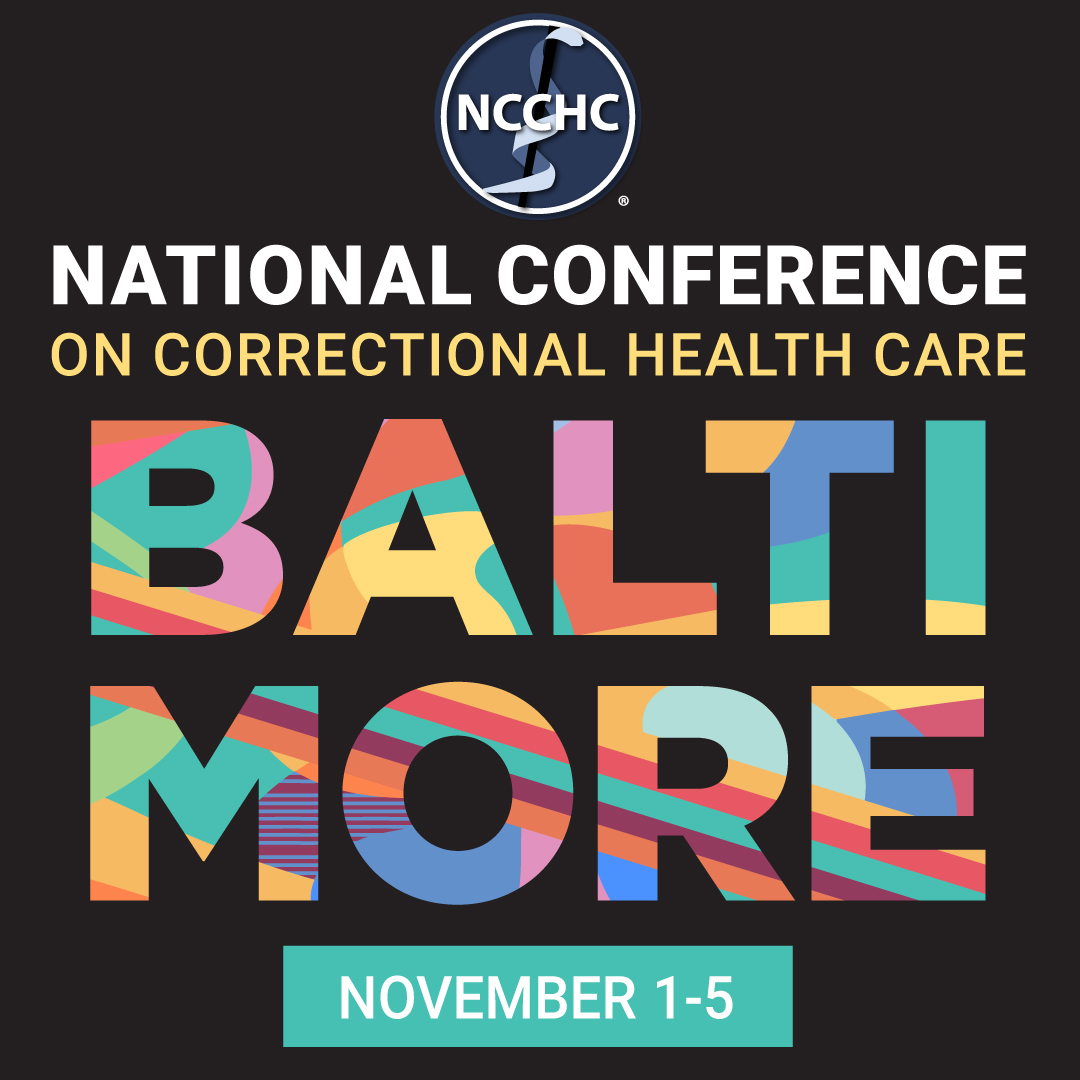Image Credit: Courtesy of NCCHC
By Kim Sterling
The National Commission on Correctional Health Care (NCCHC) will host its flagship National Conference on Correctional Health Care from November 1-5, 2025, in Baltimore. The conference brings together thousands of physicians, nurses, mental health professionals, administrators and custody leaders committed to improving care behind bars. It showcases the latest research, proven practices and emerging challenges in the field, offering a rare opportunity for multidisciplinary collaboration.
NCCHC CEO Deborah Ross emphasizes the importance of the event: “Correctional health is a team effort, and it relies on the many disciplines and custody working together to be successful. As the largest conference in the field for correctional health professionals, it offers critical knowledge across a range of topics, including suicide prevention, chronic care and behavioral health management. This shared knowledge strengthens collaboration between security and health care teams, reduces institutional risk and ultimately makes facilities safer for both staff and incarcerated individuals.”
Standards, Safety and Quality Improvement
The foundation of correctional health care begins with strong standards and oversight. In-depth seminars on NCCHC’s new 2026 Health Services and Mental Health Standards will help prepare facilities for updated requirements. Sessions on quality improvement provide practical strategies to identify gaps and enhance outcomes, reinforcing accountability and constitutionally adequate care.
Addressing Critical Health Risks
Correctional populations face heightened risks for serious and chronic conditions. Sessions on tuberculosis, hepatitis C and HIV will equip participants with best practices for containing and treating communicable diseases in secure environments. Chronic care and women’s health are also prioritized, with case-based discussions that emphasize evidence-based interventions to reduce mortality and improve outcomes.
Mental Health and Suicide Prevention
Mental health remains a pressing concern in correctional environments. The conference features suicide prevention strategies, mentorship in behavioral health, and effective approaches to care in restrictive housing. Presentations on dual loyalty examine the ethical complexities of serving patients while working within correctional systems.
Legal, Ethical, and Professional Development
The legal landscape is continually evolving. A mock deposition session will prepare attendees for courtroom testimony, while ethics-focused sessions encourage reflection on dilemmas providers often face. Additional presentations highlight professional mentorship and workforce development, offering tools to support staff and reduce turnover.
Building the Future of Correctional Health
The conference underscores that correctional health care cannot succeed in isolation. From methadone program partnerships to collaborations with public health organizations, the agenda demonstrates how institutions and communities can work together to address substance use disorders, reduce recidivism and improve reentry outcomes.
With more than 100 sessions, extensive networking opportunities and a robust exhibition hall, the National Conference on Correctional Health Care is the premier event for advancing the profession. Participants — including clinical staff, administrators and custody leaders — will leave with actionable strategies to strengthen their facilities and contribute to a safer, healthier correctional system nationwide.
For more information, visit www.ncchc.org/national-conference.


